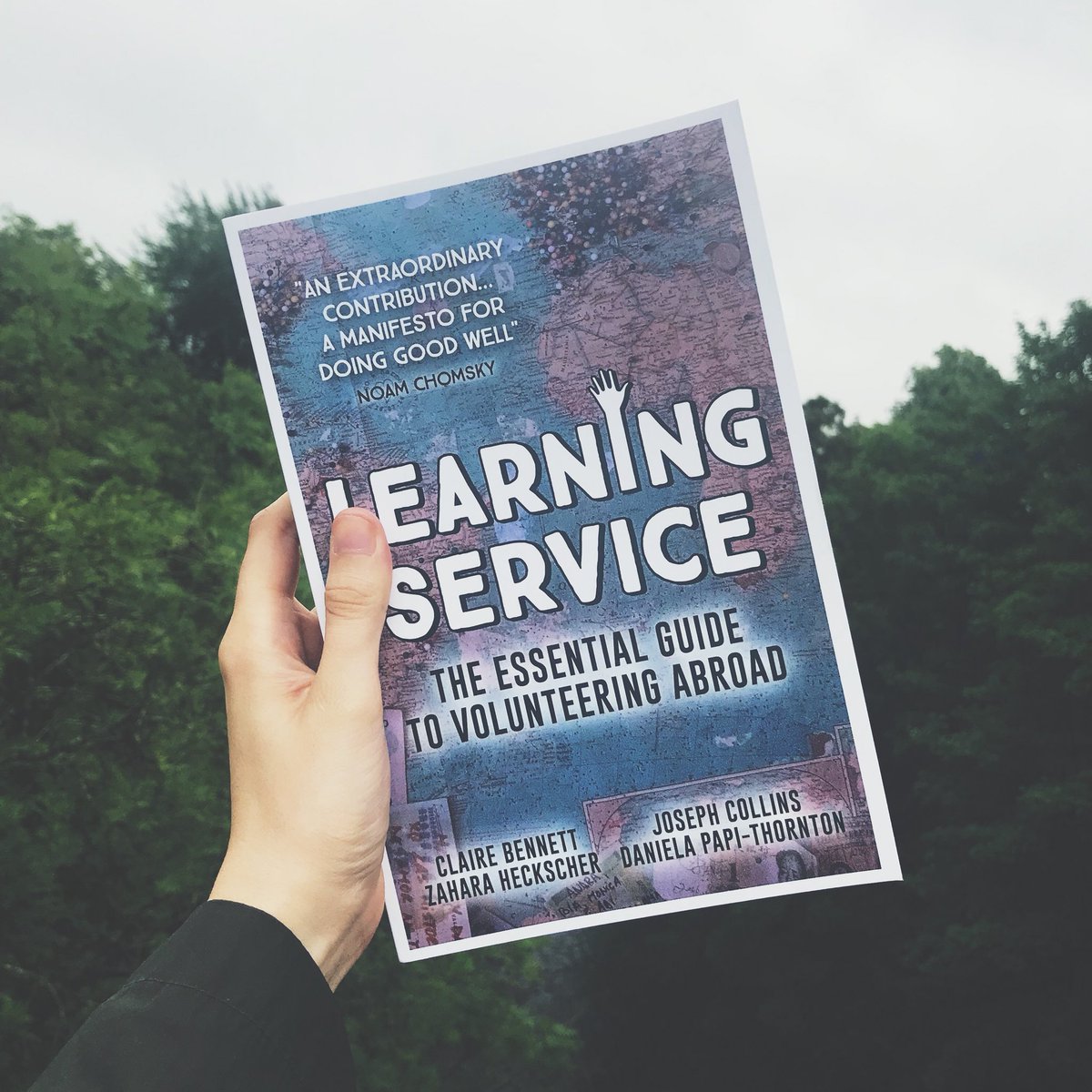
Volunteering Abroad Can Do Harm – But It Doesn’t Have To
January 14, 2020
Worried about Covid-19? Here’s why now is the PERFECT time to start your TEFL course…
March 9, 2020
Learning Service in the TEFL Industry
“Action without learning is ignorance. Learning without action is selfishness.”
~ Learning Service: The Essential Guide to Volunteer Travel
What is Learning Service?
In our first installment on this topic, Claire Bennett, co-author of Learning Service: The Essential Guide to Volunteer Travel, spoke of the real meaning behind “learning service”. In their research on volunteer travel, she and her colleagues found that impactful volunteering always had one thing in common: the volunteers themselves embraced learning first and then supported that learning with action that was meaningful and mindful of the unique culture and area that they were living in. Rather than stepping off the plane to help, these volunteers came ready to learn.
In this post, we will look at how this concept relates to the TEFL industry specifically. What issues have traditionally been perpetuated by a lack of learning service? What mindset is helpful in making a real impact in the classroom? And what are practical things to keep in mind if TEFL is your preferred choice for an experience abroad.
Some of the problems within the TEFL industry.
So, what does the TEFL industry have to do with this concept of learning service? Well, as it turns out, TEFL has long been used as a tool for people seeking to have an overseas experience. Marketed to young college grads, mid-career “burnt out” professionals, and retirees looking to try something new – it’s a choice that attracts a wide variety of people from all different walks of life.
Along with this comes challenges. Training, certification, and preparedness to enter a classroom in a new country top the list. And then there are other issues to deal with. Issues with systems that have been created and perpetuated knowingly and unknowingly by participants and organizers over the decades.
Three of the most prominent problems are:
- The creation or perpetuation of programming that contributes to a fractured educational system.
- The misinformation that certification is not necessary.
- The untruth that teaching a language and speaking a language are the same thing.
Let’s explore these three problems within the context of learning service.
#1 The creation or perpetuation of programming that contributes to a fractured educational system.
There are many countries around the world that have become hot spots for TEFL. While this is great in theory, it has resulted in the native population gearing its own English education around the presence of these foreign teachers. Sometimes this is a positive and sometimes it is a negative. On the positive side, more foreign teachers means greater exposure to native English speakers for students. On the flip side, some schools offer programs where teachers can come on 3-month contracts. This often attracts new teachers or volunteer teachers who are only seeking a short-term placement. If we look at this from a student’s perspective, we see that there is a revolving door in the classroom and a complete lack of continuity. The result is a fractured educational system that leaves volunteers feeling like they have accomplished something meaningful while students stagnate in their progress.
What can you do?
If you do want to participate in TEFL as a volunteer or as a career, look for sustainable programming. This may mean that you are volunteering as a teacher’s assistant because you yourself are still a newbie in the classroom or you are only planning a short stay. This could also mean that you look for a job with a one-year contract so that you stay with your students for a full term or year thereby ensuring continuity to their studies.
#2 The misinformation that certification is not necessary.
The second problem in the TEFL industry is the mindset that getting certified to teach is unnecessary or that it can be adequately achieved within a couple hours of training. Our response to this is simple. Think back to when you were in school. What did your teachers have to go through to be allowed to instruct you? Chances are – a lot. They probably had 4-year degrees in education along with many hours spent as student teachers in the classroom. Now compare that with a 4-week certification of 120-hours to become properly TEFL certified. Not a big ask, right? To blow off your training is to go against the quote we began this post with “Action without learning is ignorance.” You cannot begin to make a difference in the educational lives of your students if you have not properly prepared yourself for the task.
What can you do?
First, do your research. Find a TEFL certification training that is right for you. There are tons of options from in-person to online. Once you find one, take it and take it seriously. Make sure you understand the basics of planning lessons, dealing with classroom management, and brush up on your grammar! Also be mindful of the fact that while you now have your certification, you are by no means an experienced educator. Having your TEFL certificate is simply the first responsible step towards becoming a good English language instructor.
#3 The untruth that teaching a language and speaking a language are the same thing.
One of the most valuable traits a teacher can have is a willingness to learn. If you approach the profession from the angle of not needing to learn, it sets you up for failure. Much like point number two, being overconfident when you actually haven’t put in the work is not going to lead to success in the classroom. And while some schools prefer native English speakers in their hiring practices, don’t be fooled. It is often your non-native (but fluent) English-speaking colleagues that best understand the ins and outs of the language. They put in the work to learn the language when they were in school and that often pays off in their ability to teach it clearly.
What can you do?
Be realistic with yourself. If you have never taught before, don’t fool yourself into thinking that you are magically a teacher. Understand that teaching is a skill and it requires effort both pre and post getting a job. Find resources to support you in your teaching. Get a good grammar book. Ask your teacher friends for advice. Seek out a mentor if your organization doesn’t have a peer mentoring program. The more you learn about the profession, the more perspective you will gain.
Check in with yourself.
On a personal level, you should consider your motivations before choosing TEFL. Here are some points to get you started.
Reasons why you should choose TEFL for your overseas experience:
-You value listening.
-You are interested in language.
-You see the classroom as a collaborative space.
-Even if you have spent time abroad previously, you are able to approach each new culture with fresh eyes and understand that there is more to learn.
-You are eager to become TEFL certified so that you can truly manage your classes as a real teacher and make a positive difference in the lives of your students.
-You understand that TEFL requires effort and that it’s not a vacation.
Reasons why you shouldn’t choose TEFL for your overseas experience:
-You view TEFL as an avenue to push your ideas and values on another culture.
-You don’t really expect to gain anything of value from your students.
-You view TEFL as a job, not as an opportunity for collaboration and service.
-You treat every foreign culture as fitting into the same “bucket”.
-You have no interest in language learning.
-You have received no training and plan to try to get a job without a TEFL certification.
-You see TEFL as a chance to go on vacation for a year in an exotic country.
Big changes come from small efforts.
In contemplating your choices for a program or job abroad, remember that your mindset and intention is key. Big changes do indeed stem from small, meaningful efforts. If TEFL is the right path for you, be mindful of your impact. Choose programs and jobs that make a positive difference. Avoid programs and jobs that create or contribute to a fractured educational system. Also, strive to prepare yourself accordingly. Take your certification as a teacher seriously. Your future students, colleagues and bosses will appreciate your genuine approach to the profession.
To learn more on this topic, check out our first installment Volunteering Abroad Can Do Harm – But It Doesn’t Have To and grab the book Learning Service: The Essential Guide to Volunteer Travel.

